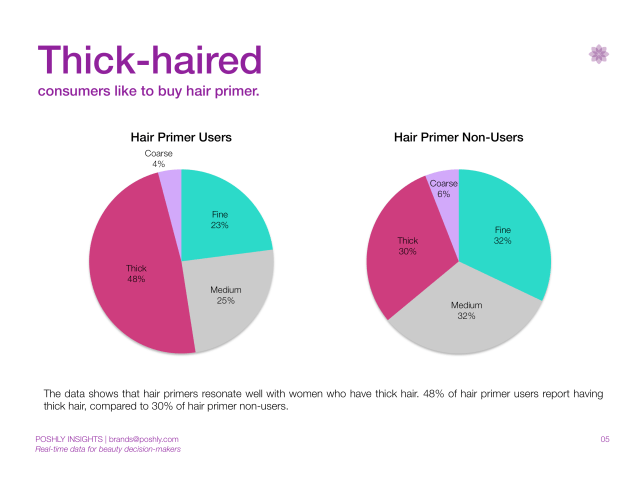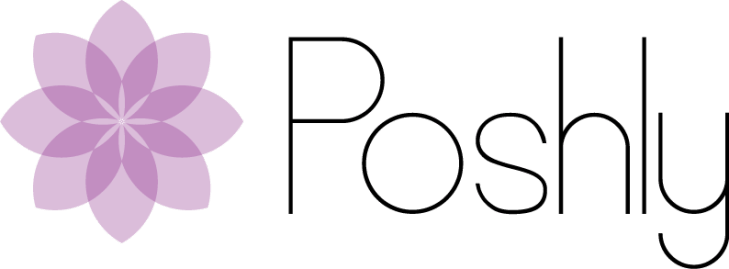After a soft launch one year ago with no marketing campaign, the beauty data collection site Poshly has redesigned and is looking to pick up steam on its B2B offerings before beginning to raise its seed round in the fall.
Poshly works like this: users take a short quiz to enter beauty product giveaways, answering questions like “Do you use eye cream?” and “My natural eyelash color is…”. The same question is never asked twice, creating a detailed “portrait” (Poshly’s term) of the user’s habits and physical characteristics.
This data moves into Poshly’s B2B offerings, which is where they’re monetizing. Beauty companies pay for access to real time market data and can create micro-targeted sampling campaigns for their products through Poshly. It’s like a personalized sample subscription: the brand sends a product to a specific swath of Poshly users with characteristics relevant to that product. Pore minimizing cream for women who have said they have large pores, for instance.
In the last year, the site has picked up 50,000 registered users and seen over 1 million questions answered, with an average of 65 data points per user. According to CEO and founder Doreen Bloch, that’s 7 times the personal attributes gleaned from a standard industry survey.
For a company that initially only planned to keep its site up for a month to gather real consumer data for algorithm creation purposes, Poshly is taking steps to establish itself in the beauty industry. Poshly has landed its first big deal with a major beauty brand on its data insight tool, and although Bloch wouldn’t say who it was yet, it’s on par with Estee Lauder, Avon, and L’Oreal.
An ecommerce feature is also in Poshly’s future, so when that quiz data gets funneled back at the user, they’ll be able to start monetizing on the B2C side.
“It’s very compelling for brands because they’re used to a traditional market space that’s hard to customize and slow moving,” said Bloch. “One thing pointed out by brand managers is that there are really no market research companies focused exclusively on beauty. We’re able to profile people at a very specific level… African American women who buff their nails at least once a week and go to Sephora once.”
Bloch said they are at work on a subscription portal that gives brands access to real time aggregated data and enables them to add in questions for consumers. User data is not presented on an individual basis, but rather collective and anonymous.
For consumers, the redesign means mobile and tablet optimization, a clearer quiz progress bar, and an indicator of how many entries a giveaway has received to encourage gamification (users can already enter multiple times by answering more questions). They will also be able to enter their mailing address to opt in for free samples from beauty companies.
So Poshly seems like a pretty smart company. But here’s where they really hit the nail on the head: targeting the online beauty community in the first place.
Since they took to the web, beauty consumers have grown into an intensely passionate and vocal bunch. While some professional makeup artists create popular YouTube tutorials, it’s the everyday beauty fanatics that are voicing their likes and dislikes all day, every day. They’re always on the hunt for the next best thing, snapping up products at Sephora after work, testing them out, and projecting their opinions to the eager void.
These women and men want to share every last nitty-gritty detail of their beauty routines. The website Into The Gloss is known for its extensive beauty rundowns from celebs, designers, and models, while YouTube is inundated with makeup tutorials that get as personal as young women taking viewers through their process for covering cystic acne.
When Poshly asks its users if they have acne scarring or dandruff, they’ll be more than happy to answer, especially when the reward is beauty freebies. Frankly, I think they’d do it even if a giveaway wasn’t on the line.
Moving forward into the fall, Bloch said the team is looking to connect with investors interested in personalization in the beauty sector. She declined to say how much they are planning to raise or how much they bootstrapped Poshly with, but did note that they are self-sufficient and growing for the time being. We’ll see who their big beauty brand deal is with, but if the redesign and new feature roll out goes well, they could be in a very good place come fall.
